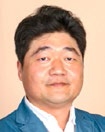On Building Industry-Academia Collaborations

This month, my guest author Dr. Byunggu Yu, a well-known researcher and educator in Computer Science and Artificial Intelligence, will be exploring new ideas on Industry-Academia Collaborations:
There is a widening gap between academia and industry in the area of product development platforms (including technologies, knowledge, and techniques therein). Industry’s adoption of new development platforms is agile and additive, while academia’s adoption is conservative and supplanting.
We are in an era of rapid prototyping. Every industry player is looking for new product development platforms for competitive advantages. The variety of industry adopted platforms is rapidly growing. On the other hand, academic degree programs have a limited capacity in leading or catching up the inflation of the platforms. This is due to the fact that the programs are constantly required to meet various internal and external accreditation requirements. Therefore, the adoption of new product development platforms in academic curricula is conservative and supplanting.
Unlike academia, industry players have to keep their stakes in each adopted platform often through its legacy stages. They are mandated by existing customers/clients or by contracts to continue to maintain or service legacy systems, while competition in growth is constantly encouraging them to be agile in adopting new platforms. Therefore, industry’s adoption of new development platforms is often additive, further increasing the variety of development platforms they use.
Particularly in disciplines related to software engineering, such as computer science and its variants, there are hundreds of software development platforms and new platforms are being born every day, accelerated by the worldwide open source trend. The industry is much more agile in these changes than academia. Therefore, academic curricula, that also need to satisfy the slowly changing accreditation guidelines, cannot catch up the widely varying and rapidly evolving needs of the industry. For example, in the area of web applications, there are 28 development platforms listed on https://www.w3schools.com/whatis/ and even more open-source platforms that are not listed there. While our academic programs can cover a small subset of the platforms there, it is not and will never be enough. In fact, this gap between industry and academia has been rapidly widening.
The challenge we face here is summarized as follows: the percentage of new graduates from academic degree programs who can find exact job matches is decreasing. Therefore, both initial student success rates as well as our industry’s competency are being suppressed. Because this challenge is rooted at the interplay of the two different value systems – industry and academia – our approach should be collaborative. To be successful and effective, such collaborations need to be mutually beneficial.
This semester, we are conducting two experimental projects to address this challenge with our industry partners (companies). Project One is to build a system of industry-proposed projects for experiential learning in our classrooms; Project Two is to develop pre-employment weekend programs. Both projects are designed and conducted by industry-academia teams spanning graduating seniors, graduate students, faculty, and companies in various industries including health, logistics, marketing and advertising, information technology, and finance.
Project One can provide participating students with hands-on and experiential learning opportunities regarding various industry applications and development platforms beyond their curricula. At the same time, the industry partners can build a collaboration basis with the participating professors, which can extend their research capacity with a quick turnaround option. For Project One, we are collaborating with CapSource (www.capstonesource.com). CapSource has kindly helped us initiate and design various industry-academia collaboration projects.
For Project Two, our sponsoring companies including Precise Software Solutions developed a notion of “pre-employment certification program” as follows:
1. Company “C” wants to hire new graduates with a certain skill set (e.g., low-code programming on Appian and Agile-Scrum-Sprints);
2. A free tailor-made weekend or summer training program is designed and offered to graduating seniors;
3. The training sessions are taught by experts from Company “C” and optionally by participating professors;
4. Company “C” sponsors industry-recognized certifications and hires a number of top-performing students closing the program.
We have found that this kind of collaboration can produce Win-Win-Win if well designed and carefully communicated with high work standards and ethics: Students get a free training, certification, and employment opportunity; Professors can contribute to student success and get hands-on exposure to industry technologies and platforms; Sponsoring companies can identify and hire best tailor-made employees.
Projects One and Two were just born (Spring 2020) and highly experimental. We expect that the projects will undergo a lot of changes in the near future. If you are interested in partnering with us, please do not hesitate to contact me at This email address is being protected from spambots. You need JavaScript enabled to view it. or via my LinkedIn page at https://www.linkedin.com/in/byunggu-yu-79a70551/ anytime. We are constantly looking for new partners.
Dr. Byunggu Yu,
Professor of Computer Science
LinkedIn: https://www.linkedin.com/in/byunggu-yu-79a70551/

